Hi everyone, my wife and I recently purchased a home now coming on two years ago... And like with any new house we started work on it from the inside out - Replaced the furnace (Ouch on the wallet), replaced the main sewer pipe running from the 2nd to 1st floor and a few other smaller things.
Now it's the chimney's turn. When we got the house we noticed there was the slightest lean away from the house, almost not noticeable at all. The lean is there, two years on but not significantly changed. What has changed however is the mortar between the bricks has come out and the flashing is massively damaged. Long story short, we had 6 different people come:
The 3 companies wanted to tear it all down and go down 12-14 courses of bricks. Where as the other 3 smaller companies gave options for both. We settled on one guy who wants to do it for $4,500 - Full rebuild and flashing. Or he would ground out the mortar, replace it, and do the flashing for $1,600.
We like the guy, but money is very tight for us. So we wanted to see if any of you have been through this before. I saw a post on here back in 2007 with the same general scenario but that chimney looked in far worse shape an ours lean wise. I will attach photos. Tell me what you guys know/think. Thank you!
PS: when we got the house inspected, he mentioned that the mortar just needed to be replaced, he felt the lean was not significant enough for a full rebuild. But that was 2 years ago.
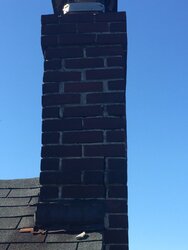
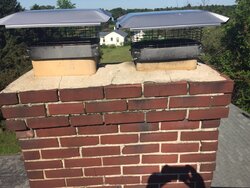
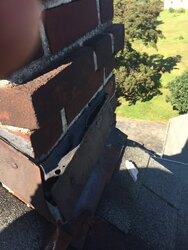
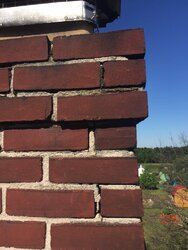
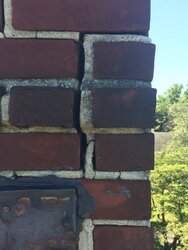
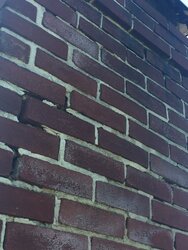
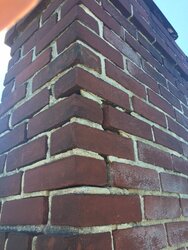
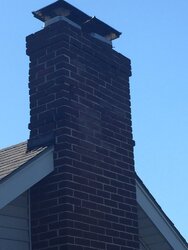
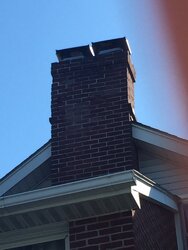
Now it's the chimney's turn. When we got the house we noticed there was the slightest lean away from the house, almost not noticeable at all. The lean is there, two years on but not significantly changed. What has changed however is the mortar between the bricks has come out and the flashing is massively damaged. Long story short, we had 6 different people come:
The 3 companies wanted to tear it all down and go down 12-14 courses of bricks. Where as the other 3 smaller companies gave options for both. We settled on one guy who wants to do it for $4,500 - Full rebuild and flashing. Or he would ground out the mortar, replace it, and do the flashing for $1,600.
We like the guy, but money is very tight for us. So we wanted to see if any of you have been through this before. I saw a post on here back in 2007 with the same general scenario but that chimney looked in far worse shape an ours lean wise. I will attach photos. Tell me what you guys know/think. Thank you!
PS: when we got the house inspected, he mentioned that the mortar just needed to be replaced, he felt the lean was not significant enough for a full rebuild. But that was 2 years ago.









Last edited:


